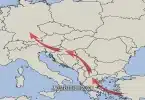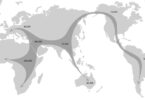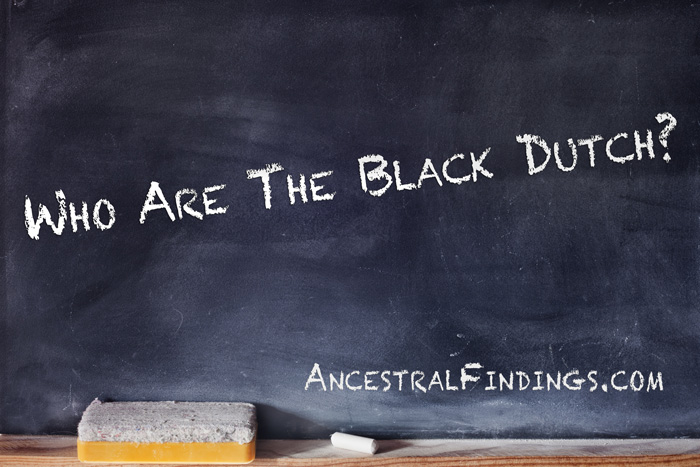There are plenty of families who claim Mayflower ancestry. It seems that just about any family with a long history in America has a Mayflower story. The question is whether these stories are actually true. Just as most families have a “family myth” or legend of some kind, most of which can be proven untrue (or based only on a bit of truth that changed over the centuries), the Mayflower story is often the family myth.
Years ago, I met a distant cousin by chance, and when discussing family history, he said he had always been told our particular shared branch arrived on American shores on the Mayflower. Having researched that line extensively, I already knew this was not true, and that the first American immigrants from that family branch came about twenty years after the Mayflower. The cousin seemed so enamored with the story, though, I could not bring myself to disabuse him of the notion, and left him believing it.
However, having genuine Mayflower ancestry in America isn’t terribly uncommon. There were enough passengers that they produced millions of descendants over the four centuries since the Mayflower landed on American shores. There is even a genealogical society for those descendants… the General Society of Mayflower Descendants. If you are interested in proving your Mayflower heritage, either for your family’s own knowledge or to join the Society, here is how you do it.
-
Don’t Research More than You Have To
Since you’re going back almost four centuries, the records you will need to collect to prove your Mayflower heritage may seem daunting. But, it doesn’t have to be. This is because the General Society of Mayflower Descendants has already done a lot of the most distant work for you. The Society has a published series of books called Mayflower Families Through Five Generations (also known as the “silver books” because of the color of their hardcovers).
These books follow most of the Mayflower passengers and their known descendants through the first five generations after the landing at Plymouth; each book is devoted to one individual Pilgrim. The books are excellent sources because they have been approved by expert genealogists, and use original source material to prove relationships. Whether you’re working up from your Mayflower ancestor, or back from yourself, these books can help you make the connection.
-
Check Other Mayflower-Focused Resources
Once you get past the fifth generation, it can become a little more challenging to find the records that prove your ancestry. This is because groups of New Englanders began moving away from Massachusetts around this time, going to New York, Pennsylvania, Canada, and the western territories that were newly opened at the time. If you know where your Mayflower descendant ancestors lived during this time, it will be easier to look for records of them. If not, you will have to do some searching.
Before you start casting a wide net on all of the genealogy sites online you can find, and going to courthouses, archives, and libraries across the country, try some other Mayflower-focused publications. Check past issues of The Mayflower Descendant, a scholarly publication on Mayflower families begun in 1899. You can find them on AmericanAncestors.org, and new issues are still published by NEHGS. Check the archives by name; the publication often had articles on 6th, 7th, and even 8th generation Mayflower descendants, and connected them to people in the “silver books.”
There is also a book, called Mayflower Births & Deaths: From the Files of George Ernest Bowman at the Massachusetts Society of Mayflower Descendants, by Susan E. Roser. Published in 1992, you will also find birth and death information for Mayflower descendants through the eighth generation in this book. And, if your family is not included, it will still likely point you to the right geographical area of their migration, so you can begin searching for them there.
-
Check with New England’s Resources
Once you’ve gotten up to the eighth generation, chances are that you are getting close to the generations of people you actually know or knew. If you haven’t actually come across familiar people yet, you’re almost certainly getting close to them. This means you’re almost there in terms of proving your Mayflower lineage.
If you know your Mayflower line stayed in New England, you can check the many published volumes of Massachusetts vital records for them. These books list births, deaths, and marriages up to 1850 in almost every town in Massachusetts. Maine also has published vital records up to 1892, but it only includes 80 of the nearly 500 municipalities in the state. The Barbour Collection will give you vital records from Connecticut up until the mid-1800s, as will the Arnold Collection for Rhode Island. New Hampshire has a book of published vital records going from the early days of European settlement to 1900, and Vermont has one that goes up to 2008. Any of these books are good sources to continue tracing your Mayflower lineage into the present day if your Mayflower line stayed in New England.
Once you get to the mid-19th century, most genealogists should begin encountering ancestors with whom they are familiar. At this point, it becomes easier to locate the people who are in your Mayflower line and obtain the records you will need for proof of your lineage.
-
Make Sure You Have All the Documentation You Need
Remember, if you are compiling this lineage to get into the General Society of Mayflower Descendants, you will need documents to prove every birth, death, and marriage from your Mayflower ancestor to you. Some of these documents will be easier to find and obtain than others. When you think you have everything, double check to make sure you do. It will make your application approval go much more smoothly. Even if you aren’t joining the society, having all of this information will give you a proven lineage you can hand down in your family, and it is something which future generations will appreciate and can show others with pride.






